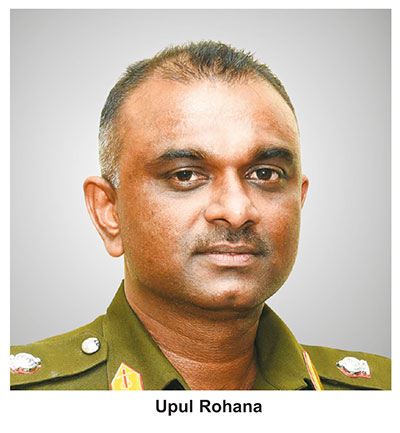News
PHIs’ union tells govt. to reconsider decision to allow GNs to release those who die at home

By Rathindra Kuruwita
The PHIs Union yesterday urged the Ministry of Health to reconsider a decision to authorise Grama Niladharis to release the bodies of those who die at home without PCR testing if the deceased were believed to be free from coronavirus infection.
Head of the PHIs Union, Upul Rohana said that 80% of the people with COVID were asymptomatic but carried the virus.
Given that testing had decreased during recent weeks, most of the asymptomatic cases had gone undetected, he said. “So, the practice was to conduct PCR tests on all those who died at home. This helped detect COVID sub clusters. If we let Grama Niladharis make a call on this, there is a possibility of some people who have died of COVID too being released,” he said.
Rohana said that usually, if one person in the family contracted COVID-19, all its members too were infected, and therefore funerals would cause the spread of the disease. “There is a delay in conducting PCRs on corpses. The answer to that is to increase PCR testing and enhance the efficiency of the process. We know for a fact that we can increase PCR tests,” he said.
Meanwhile, the College of Medical Laboratory Science (CMLS) President, Ravi Kumudesh said that they had already proposed a solution to the delays in testing corpses.
The best option was to expand rapid PCR tests, Kumudesh said. “This can be easily done by increasing rapid PCRs at regional hospitals. Sixteen Sri Lankan hospitals already do rapid PCRs. The Medical Laboratory Technologists’ union leader said that all 16 machines had been received by the country as donations and the Health Ministry officials had continuously undermined President Gotabaya Rajapaksa, who had instructed the Ministry to buy 30 rapid PCR machines.
The CMLS President said that the President had issued the order after they had written to him on eight separate occasions.
“However, the Health Ministry officials reduced the number by half, and although the tenders were called in June, nothing came of it. We wrote to philanthropists and they responded. For example, the rapid PCR machine at the Embilipitiya Hospital was donated by Ven. Omalpe Sobitha Thera, the machine at Lady Ridgeway Hospital was donated by Kumar Sangakkara and Mahela Jayawardane,” he said. Kumudesh said that if the Health Ministry went ahead with the tender and imported rapid PCR machines, all those who arrived in the country could be checked within 90 minutes.